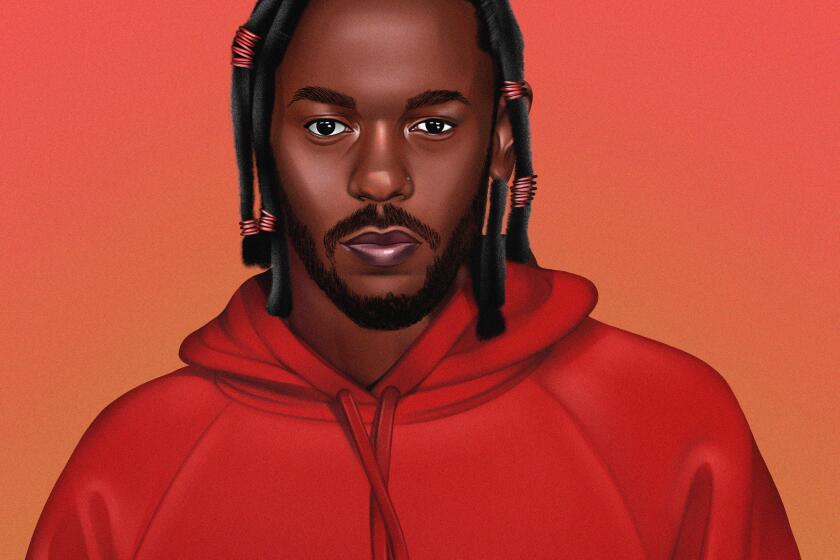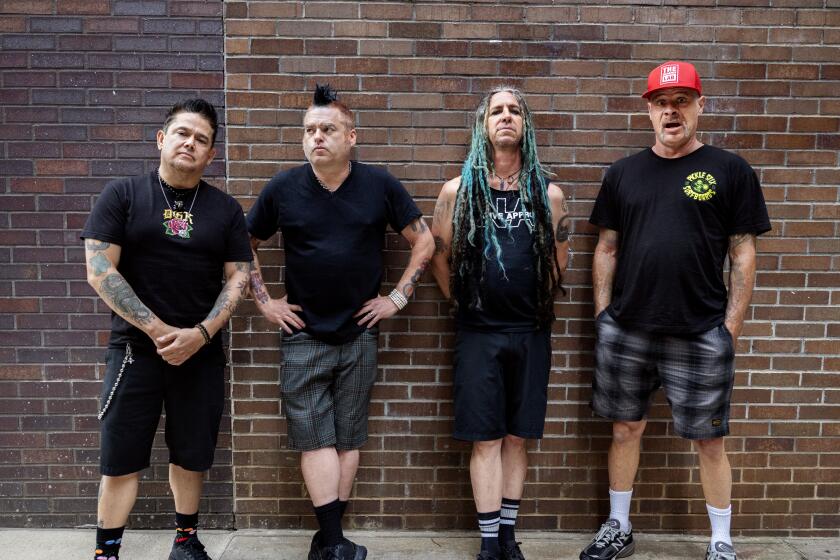Tyla won the first African music performance Grammy. Now, ‘I really want people to go deeper.’

It’s not easy to steal the show at the Met Gala. But no one who saw the South African singer Tyla ascend the stairs in May in a one-off Balmain couture gown made of sculpted sand will ever forget it.
“It just looked like a statue. I was like, ‘How am I going to get this on?’” the 22-year-old recalled from under a fluffy duvet in her bedroom in New York, where she now lives. “I didn’t think I was going to have to be carried by men up the stairs. Everything was so spontaneous but perfect, even us cutting the dress at the end. It was a piece of modern sculpture.”
The dress didn’t survive the night, but it added a new layer to Tyla’s mystique. In February, the singer won the first-ever Grammy for African music performance, for her sultry, gorgeously sung single “Water,” a defining track of the African music wave that’s reshaped the world’s pop and club music. Her self-titled debut album landed in March and could be a strong candidate to repeat.
“We’ve come a very, very long way,” Tyla said of South African musicians. “But we’re also not quite there yet. No matter how amazing our music has been, our culture has never really had that type of platform before. The Grammys doing that was a huge moment for everyone. But I feel like it’s just the beginning of something amazing for the continent.“
South Africa’s music holds an outsize role globally, with ties to the civil rights and anti-apartheid movements. Miriam Makeba was exiled for decades but her mix of jazz and Indigenous-language folk earned a global platform (she became the first African Grammy winner in 1966). Trumpeter Hugh Masekela was the first African act to top the Hot 100 in 1968 for “Grazing in the Grass.”
More recently, amid the wider Afrobeats wave , South Africa yielded the distinct club genre of amapiano. It’s a svelte, melodic style of dance music pitched between European deep house, jazzy R&B and local styles like kwaito and gqom.
“Water,” the Johannesburg native’s smash 2023 single, is feather-light and elegant, slinking around a deft amapiano beat . The English-language song (and its followup “Jump”) spurred TikTok dance crazes showcasing local “Bacardi”-style legwork . Travis Scott jumped on a remix, and “Water” eventually hit No. 7 on the Hot 100.

“When ‘Water’ had its success all of a sudden, we knew the song was amazing but it was a shock to all of us, ” she said. “It was pressure, but only because I felt like I was finally now given the platform to make it not only beneficial to myself, but to the people after me.”
Tyla proved she not only mastered the nuances of her local sounds, but absorbed the vocal techniques and melodic savvy of R&B singers like Beyoncé and Aaliyah. Tyla joined the great tradition of South Africa as a global crossroads for music.
But the album also thrums with wariness of modern fame and its distortions. “Priorities” could be about an exhausting relationship, but it could also be about the perils of being in demand — “My first mistake / Thinkin’ that I could be everythin’ / Look how spreadin’ myself thin became / My priority again.”
On “Truth or Dare,” she roasts a former partner, lamenting that they “Can’t handle what I am now / You’re a fan now and I’m not what I was … When they ask you questions about me, tell ‘em how / We could’ve gone places, but you were too impatient.”

“It’s been scary, because not only did my life completely change, I’m in a different country and so many things are different culturally that I’m still trying to navigate,” she told The Times. “I’m learning in front of the world. When I make mistakes, it’s going to be a thing that everyone sees, and some people won’t ever forgive. I didn’t expect it to be this hard.”
The occasionally painful work is worth it, Tyla says, because this is such an important juncture for African music. Acts like Burna Boy, Wizkid and Tems have enjoyed chart success and Grammy acclaim. This dedicated new category for African music will spur consideration for top general prizes.
Tyla has joined Makeba and Masekela in triumphing at the Grammys and on the pop charts. Her next moves will be an affirmation of what her country and continent already know — African music is the future, and Tyla is a genre-fluent ambassador.
“I really want people to listen to the artists that purely make African music,” she said. “Purely amapiano, purely Afrobeats, original sounds of Africa. I really want people to just go deeper, and I want to share this with other artists. Our music and our culture and what we stand for, everything that we’ve been making in Africa, I see it as so much bigger than it is right now. “
More to Read
The biggest entertainment stories
Get our big stories about Hollywood, film, television, music, arts, culture and more right in your inbox as soon as they publish.
You may occasionally receive promotional content from the Los Angeles Times.











